Coronavirus has forced communities around the globe into relative lockdown, severely restricting travel, shutting offices, schools and shops, and putting enormous strain on health services.
In the UK, older people and those at greatest risk of being infected have been urged be particularly vigilant, with many public gatherings of all sizes being postponed or cancelled.
Here is a guide to what it all means.
– What is coronavirus?
Coronaviruses are a large family of viruses that can cause problems ranging from the common cold to Severe Acute Respiratory Syndrom, also known as Sars.
Covid-19 is the illness caused by this particular type of coronavirus.
In short, it is the biggest public health crisis the UK has faced in a generation.
– When did it start?
The Chinese government first announced it was treating several cases of pneumonia in December last year, apparently brought about by an unknown virus. Within two months, that cause was known around the world.
The Department of Health later announced it was monitoring all flights from Wuhan, where the virus is thought to have originated, to the UK.
The first confirmed cases in the UK were reported at the end of January when two members of the same family – a University of York student and a relative – test positive for the virus.
Typical symptoms include a new cough and a high temperature, where skin is hot to the touch.
Having a sore throat, a headache or aching across the rest of the body is not necessarily indicative of having the virus, though.
The symptoms can be very mild and some may be infected seemingly without presenting any signs of being so.
But others, particularly those with underlying health problems, have already died.
– What is self-isolating?
If anyone is symptomatic, the whole household should stay at home for 14 days to avoid the spread of infection.
This period starts from the day the first person in that house became ill.
People who live alone should isolate themselves for seven days.
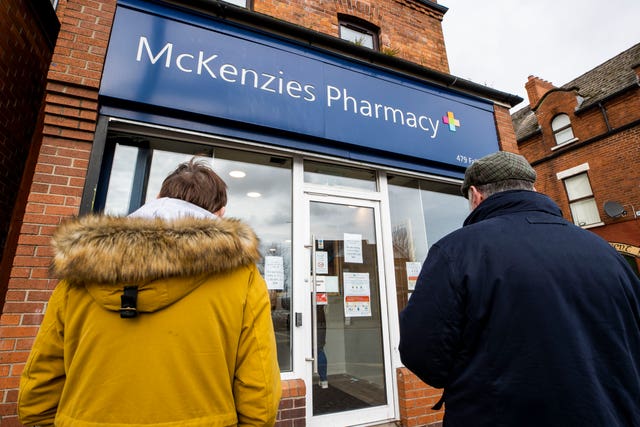
The Government has asked everyone to undertake social-distancing measures to further limit the spread of Covid-19.
This is considered to be any “large gatherings”, plus going to pubs, cinemas, restaurants and theatres, while sporting events, festivals and concerts have also been postponed or cancelled.
People in certain at-risk groups – such as those over 70 and those with underlying health conditions such as asthma and heart disease – have been urged to be “particularly stringent”.
– Forget isolation, I need to get to work. Can I use public transport?
People have been urged to avoid all non-essential public transport, taking particular care to avoid rush-hour.
Some public transport schedules have been scaled back, while businesses have been encouraged to allow staff to work from home to reduce further risk of spreading infection.
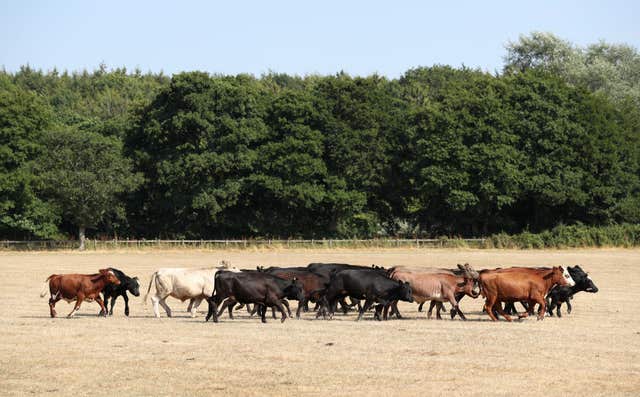
This is where much of the population is protected from a contagious disease because a significant proportion of its number has become immune through either having survived an infection or through been immunised.
England’s chief scientific adviser Sir Patrick Vallance said last week that a herd immunity approach could be beneficial.
But Health Secretary Matt Hancock denied that was the Government’s policy, describing it as a “scientific concept”.
The approach had been criticised by a group of scientists from UK universities, who said it risks “many more lives than necessary”, and was called into question by the World Health Organisation (WHO).
– If I feel ill, what medication should I take?
Health officials have been clear: take paracetamol, unless a doctor has advised you it is unsuitable.
There has already been confusion over the use of anti-inflammatory drugs such as ibuprofen, after a French minister said it could worsen the case.
Pharmacies and supermarkets across the UK have seen supplies of both run low in the weeks since the virus took hold.
– What medical support should I seek?
People have been advised to use telephone or online services to contact a GP or other essential services.
However, those with a scheduled hospital or other medical appointment during this period are encouraged to talk to their GP or clinician to ensure they continue to receive the care they need.
People have been advised against turning up at hospital, and in some cases, appointments and operations have had to be postponed to help ease the pressure on the NHS.
Are you a footballer, an actor or another famous person? If not, then the answer is more likely to be ‘no’.
Certainly, social media is awash with the likes of Luther star Idris Elba, Arsenal boss Mikel Arteta and former Bond girl Olga Kurylenko all testing positive for the virus.
The NHS is also testing, though demand is typically outstripping supply. Those wanting to take a test privately will have to pay around £375 for the privilege.
– Isn’t that quite unfair?
Professor Chris Whitty, England’s chief medical officer, has defended the Government’s position, saying there was “complete surveillance” testing in intensive care in the UK, while hospitals were also testing patients with pneumonia and GPs were testing in the community.
The NHS in England said it is planning to ramp up testing facilities.
– If I’ve already had the coronavirus, will it show up on any subsequent test?
At the moment tests are only useful for people who were currently sick.
However, Prof Whitty said it would be “transformational ” if there was a way to find out whether people had previously had it.
That would show what proportion of people can get the disease without any symptoms, he said, adding that Public Health England was “very rapidly” developing such a test.
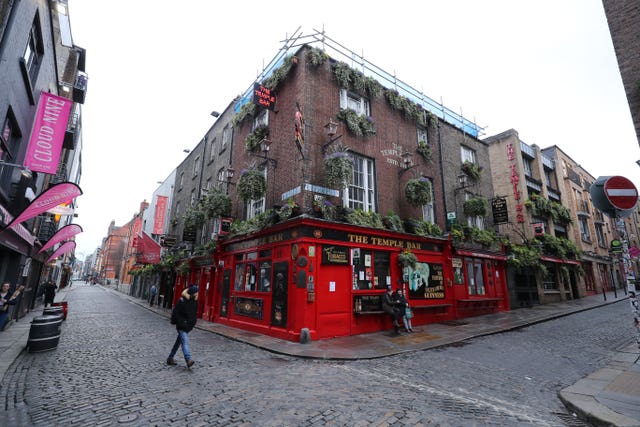
Most people in society have been asked to change their day-to-day lives in some way, from long-distance travel to washing hands more regularly.
The Prime Minister has urged “everyone to stop non-essential contact with others and to stop all unnecessary travel” in a bid to contain the spread.
He is likely to have seen spiralling death tolls and infection rates across other parts of Europe as a warning sign, though others have said the measures – advice, or guidelines, rather than commands – do not go far enough.
– How long will the restrictions go on for?
The situation is changing constantly.
However, many have claimed that a lack of testing kits means nobody can be sure of the true scale of the problem, and how many have been affected.
International travel bans have already been extended, many until at least mid-April, so there is certainly potential for it to happen again.
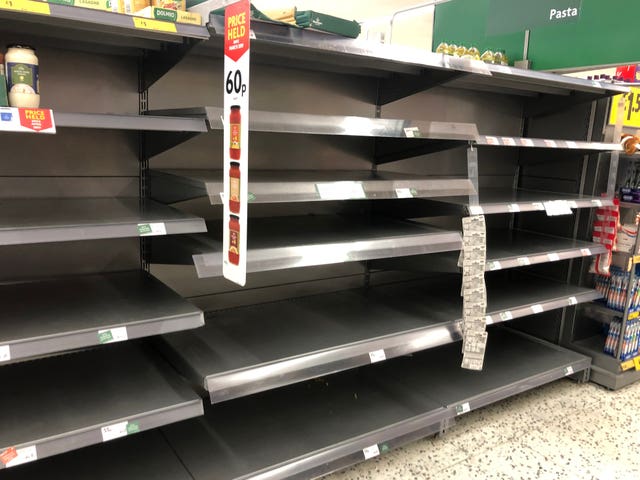
The total number of coronavirus cases across the world has soared in recent weeks and is still on the rise.
In China, where it originated, the number of cases appeared to tail off in February before soaring again over a few days.
It has since plateaued, giving rise to hopes that efforts to contain its spread have worked.
As far as the UK is concerned, evidence of continued panic-buying and further cancellation of events up and down the country in the weeks and months ahead suggests there is a way to go yet.
– At least I’ve got my holiday next month to look forward to, right…?
Hold your horses. Unless that holiday is in a tent in your garden, there’s little certainty it will be going ahead.
Airlines have taken a scythe to their schedules, cancelling flights due to diminishing demand and bans at some international borders.
The Foreign and Commonwealth Office is advising against all non-essential foreign travel for an initial period of 30 days, and to check with the travel provider and insurance provider about possible refunds.
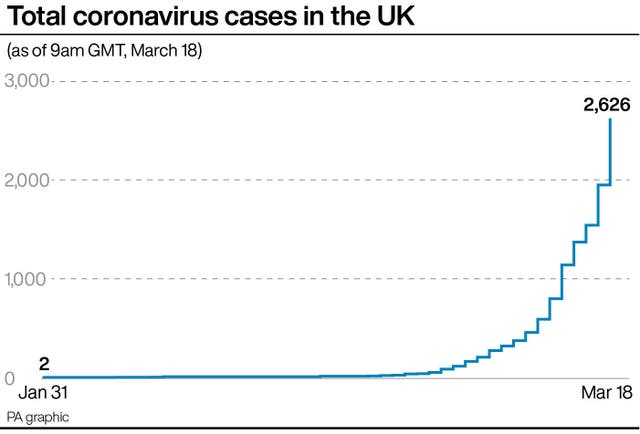
At present, the Government has largely issued “guidance” on staying at home and avoiding crowds.
But this week Mr Hancock said plans are afoot to give police the power to arrest people with coronavirus who are not self-isolating.
He said he doubted it would need to be used “because people have been very responsible”.
– What is the Government doing to help businesses and families?
The £350 billion support package announced by Chancellor Rishi Sunak on Tuesday was almost entirely directed at businesses.
Measures included Government-backed loans worth £330 billion – equivalent to 15% of GDP – to help businesses which need access to cash, and a package of tax cuts and grants worth more than £20 billion.
On Wednesday, Boris Johnson promised to protect private renters from eviction due to the spread of coronavirus as he said the Government was overseeing “unprecedented” steps to manage the crisis.
It followed criticism the initial fiscal bazooka failed to protect the most vulnerable in society, including those on low incomes.
– Looks like the Eurovision Song Contest will be the next thing I have to look forward to then…
Sadly not. The showpiece musical spectacular is among the highlights of the entertainment calendar to be tossed on to the bonfire this year.
An official statement from the European Broadcasting Union on the #Eurovision Song Contest 2020. pic.twitter.com/b3h7akxvpF
— Eurovision Song Contest (@Eurovision) March 18, 2020






